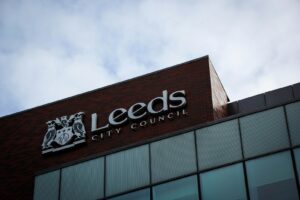The homelessness minister has announced £34m will be provided to deliver extra beds, but campaigners have claimed this is simply not enough.
At the beginning of this week Felicity Buchan, the homelessness minister, stepped into the spotlight as she announced £34.6m will be invested in providing 4,300 additional beds and over 600 more support staff across 84 areas in England, including London where homelessness rates have skyrocketed.
The announcement came a year after the government set out its rough sleeping strategy and less than 15 months until the Conservative manifesto, which was set out in 2019, promises to end rough sleeping by the end of 2024.
‘One year on from the launch of our ground-breaking strategy we remain as committed as ever to ending rough sleeping,’ Ms Buchan said.
The homelessness minister added: ‘The full weight of government remains behind this very important pledge, and this can be seen in today’s funding boost to provide thousands more beds and hundreds more support staff into the heart of communities where they are most needed.’
Following this, Felicity Buchan said the new funding is on top of the £500m already proposed to fund the Rough Sleeping Initiative over three years. As it stands, that money has funded 14,000 beds for homeless people and 3,000 staff to provide tailored support across England.
Overall, the UK government has said it is spending £2bn on tackling the current homelessness issue through its rough sleeping strategy, including funding Housing First pilots, accommodation for ex-offenders and targeted drug and alcohol treatment.
However, evidence of the government helping to get people off the streets still remains to be seen.
According to research obtained by a Department for Levelling Up survey, more than 3,000 people were estimated to be sleeping rough on a single night last autumn – a 26% increase that was seen for the first time in four years.
In addition, last week the charity Homeless Link discovered frontline homelessness services were struggling to keep up with the cost-of-living crisis. The charity discovered almost a quarter of homelessness accommodation providers in England had seen a decrease in funding since 2021.
‘Homelessness services have been hit hard by the cost-of-living crisis, so any support for the sector is welcome,’ Rich Henderson, chief executive of Homeless Link, said. ‘However, our research found almost a quarter of homelessness accommodation providers have seen a decrease in funding since 2021. Many have scaled back or even closed down as a result, with this funding nowhere near enough the plug the gap.’
While the government’s latest announcement focuses on relieving rough sleeping, Henderson claimed authorities should be looking to provide more affordable social homes to prevent people on low incomes having to sleep on the streets.
To demonstrate how homelessness services have been affected, the charity Crisis announced last month that offices in Rotherham and Coventry would be closed due to reduced income and rising costs.
The charity’s chief executive, Matt Downie, said: ‘While it’s positive to see the Westminster government providing funding to support people sleeping rough, it is the bare minimum of what’s required.
‘All forms of homelessness are increasing. A combination of rising living costs, soaring rents and huge demand for properties is leaving households across Britain unable to find or keep an affordable home.’
Image: Jon Tyson
Councils running out of options as demand from households facing homelessness soars
New ‘appalling’ figures highlight London’s acute homelessness crisis

















Leave a Reply